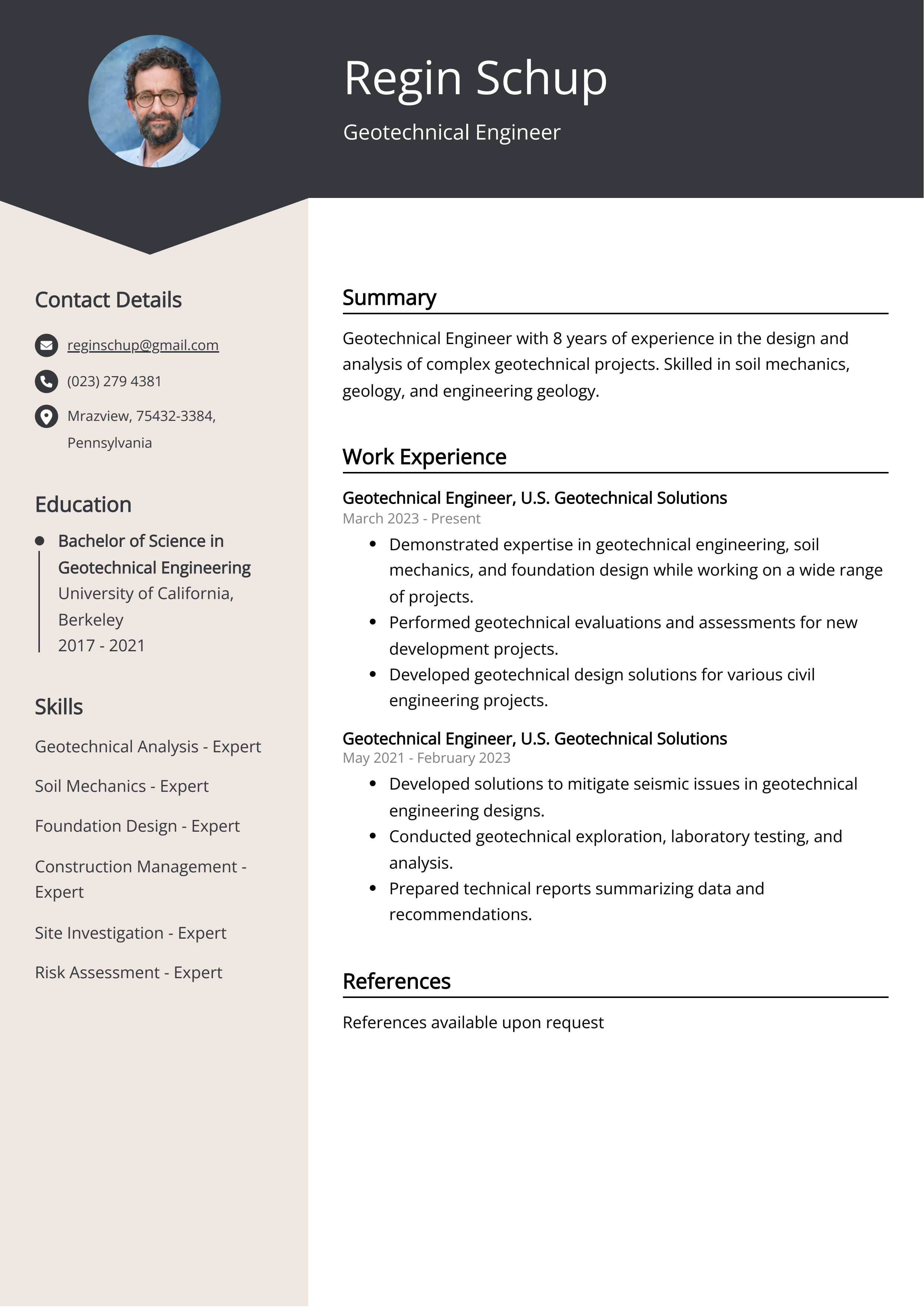Some Ideas on Geotheta You Should Know
Some Ideas on Geotheta You Should Know
Blog Article
Some Known Questions About Geotheta.
Table of ContentsThe smart Trick of Geotheta That Nobody is DiscussingThe Best Guide To GeothetaWhat Does Geotheta Do?What Does Geotheta Mean?The Of Geotheta

They perform site investigations, accumulate samples, carry out laboratory examinations, and evaluate information to evaluate the viability of the ground for construction projects - Geotechnical Engineers. Based upon their searchings for, geotechnical engineers offer suggestions for foundation design, slope stability, preserving structures, and mitigation of geotechnical dangers. They collaborate with other experts, such as designers, structural engineers, and construction teams, to make sure that geotechnical factors to consider are integrated into the overall task layout and application
By evaluating the habits and residential properties of soil and rock, they can determine possible geotechnical hazards such as landslides, soil settlement, or incline instability. Their knowledge assists stop failings or mishaps that could endanger lives and building. Here are some detailed responsibilities and obligations of a geotechnical engineer: Website Examination: Geotechnical engineers conduct website examinations to gather information on subsurface conditions.
They analyze the data to comprehend the homes and behavior of the dirt and rock, including their stamina, permeability, compaction attributes, and groundwater problems. Geotechnical Analysis and Style: Geotechnical engineers evaluate the data accumulated during site examinations to assess the security and viability of the website for building and construction tasks. They perform geotechnical estimations and modeling to review aspects such as bearing capability, settlement, incline security, lateral planet stress, and groundwater flow.
The 3-Minute Rule for Geotheta
Foundation Style: Geotechnical engineers play a vital duty in making foundations that can securely sustain the desired framework. They analyze the dirt problems and tons needs to determine the suitable foundation type, such as superficial structures (e.g., footings), deep foundations (e.g (https://www.easel.ly/browserEasel/14498559)., heaps), or specialized methods like dirt enhancement. They think about factors such as settlement limitations, bearing ability, and soil-structure interaction to develop ideal structure layouts
They assess building and construction strategies, monitor site tasks, and perform field examinations to confirm that the layout recommendations are followed. If unexpected geotechnical problems occur, they examine the circumstance and supply recommendations for removal or adjustments to the style. Threat Analysis and Reduction: Geotechnical designers analyze geotechnical risks and threats associated with the project website, such as landslides, liquefaction, or soil erosion.

Cooperation and Communication: Geotechnical designers function carefully with other specialists included in a project, such as architects, architectural engineers, and construction groups. Effective interaction and collaboration are important to integrate geotechnical considerations right into the general job design and building and construction process. Geotechnical designers provide technological proficiency, response queries, and make certain that geotechnical requirements are met.
Unknown Facts About Geotheta
Here are some sorts of geotechnical designers: Structure Engineer: Structure engineers concentrate on designing and examining structures for frameworks. They assess the try these out soil conditions, tons requirements, and site characteristics to identify one of the most suitable structure kind and design, such as superficial foundations, deep structures, or specialized methods like pile structures.
They review the variables influencing slope security, such as dirt properties, groundwater problems, and slope geometry, and develop methods to avoid incline failings and mitigate risks. Earthquake Designer: Earthquake engineers focus on examining and making structures to stand up to seismic forces. They analyze the seismic danger of a site, examine dirt liquefaction possibility, and establish seismic layout standards to make certain the safety and security and durability of structures throughout quakes.
They execute area testing, collect examples, and examine the gathered information to identify the dirt properties, geologic formations, and groundwater conditions at a website. Geotechnical Instrumentation Engineer: Geotechnical instrumentation engineers concentrate on surveillance and determining the behavior of dirt, rock, and structures. They mount and maintain instrumentation systems that monitor elements such as dirt settlement, groundwater degrees, incline activities, and structural variations to evaluate efficiency and give early cautions of potential concerns.
Little Known Questions About Geotheta.
They conduct examinations such as triaxial examinations, loan consolidation tests, direct shear examinations, and leaks in the structure tests to gather data for geotechnical evaluation and design. Geosynthetics Engineer: Geosynthetics designers specialize in the layout and application of geosynthetic materials, such as geotextiles, geogrids, and geomembranes. They use these products to boost soil security, enhance slopes, supply drain options, and control disintegration.
They often tend to be investigative people, which means they're intellectual, introspective, and curious. They are interested, systematic, rational, analytical, and rational. A few of them are likewise social, suggesting they're kind, charitable, participating, patient, caring, handy, compassionate, skillful, and pleasant. Does this audio like you? Take our free career test to figure out if geotechnical engineer is one of your leading occupation suits.
In the workplace setting, geotechnical engineers use specialized software application tools to carry out calculations, create layouts, and evaluate data. They prepare records, testimonial job specs, communicate with customers and employee, and coordinate task tasks. The office setting gives a favorable environment for research, evaluation, and cooperation with various other experts included in the job.
The Facts About Geotheta Revealed
They often visit job websites to perform site examinations, assess geotechnical conditions, and collect information for analysis. These visits entail traveling to different places, sometimes in remote or challenging surfaces. Geotechnical engineers might carry out dirt tasting, conduct examinations, and screen building tasks to make sure that the geotechnical facets of the project are being carried out appropriately.
Geotechnical designers also work in specialized geotechnical labs. Geotechnical research laboratory engineers work extensively in these environments, managing screening tools, running tools, and videotaping information.
Report this page